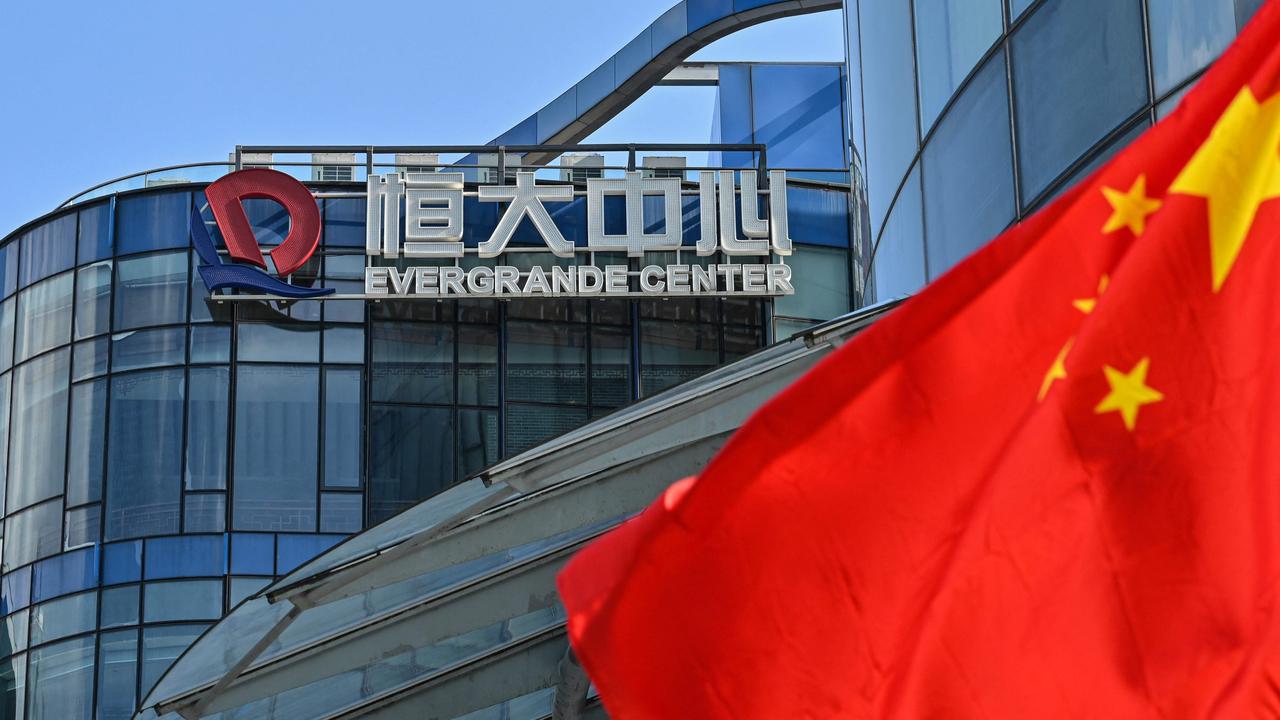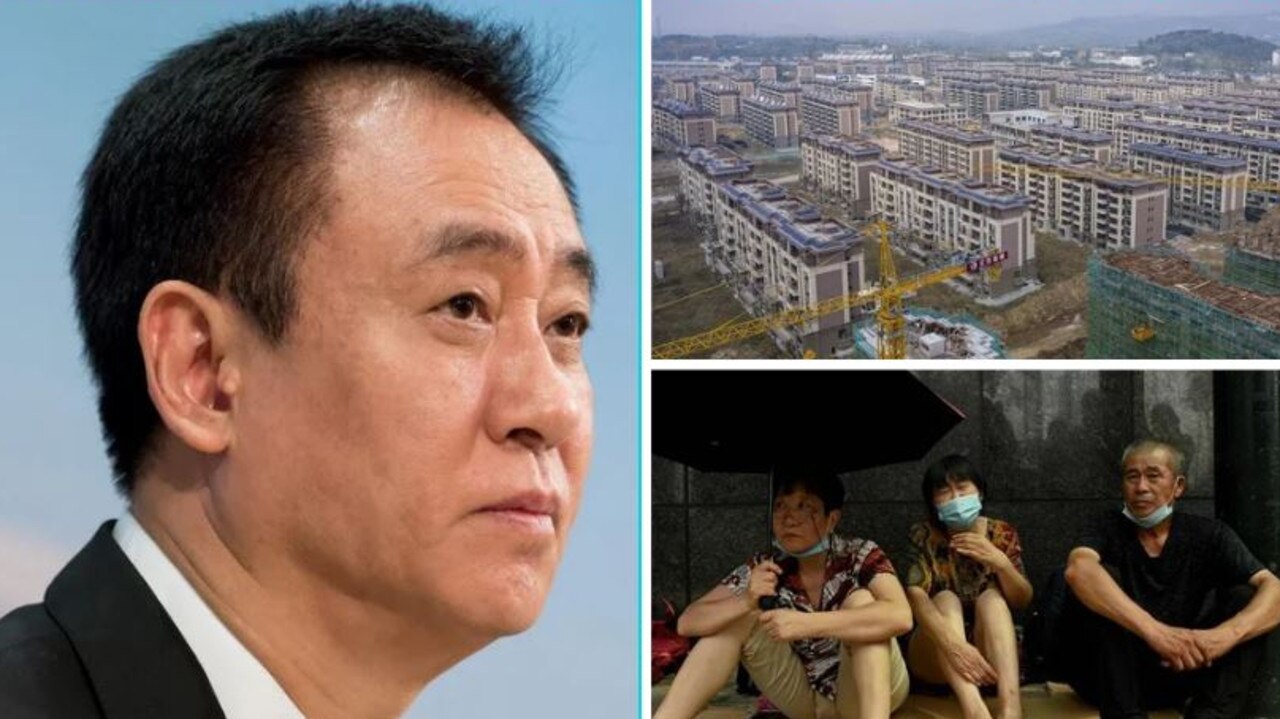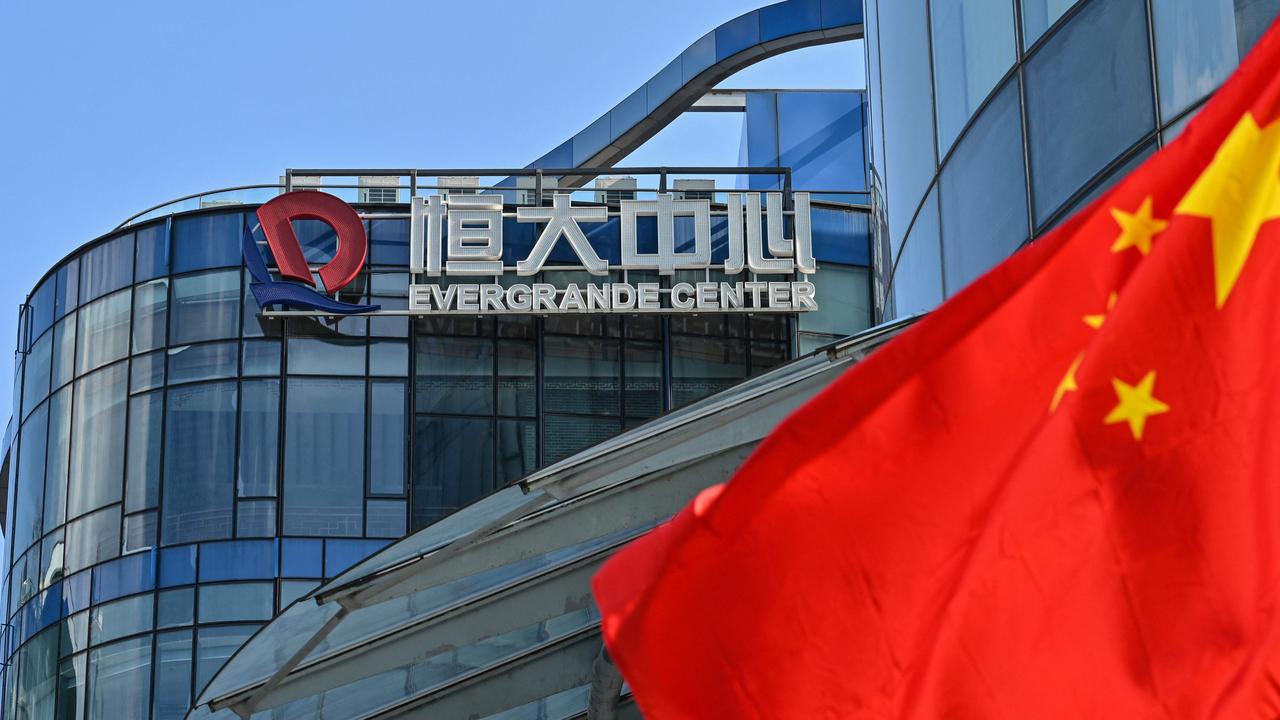Evergrande tycoon’s $17 billion bloodbath after Chinese property giant’s year from hell
There are more and more signs Evergrande is doomed, with the Chinese giant’s billionaire founder losing a fortune as “the writing appears on the wall”.

It has been a year from hell for Chinese property juggernaut Evergrande, with its billionaire founder losing a staggering $US17.2 billion as the firm nears collapse.
In 2021, the real estate heavyweight earned the unwelcome title of the world’s most indebted real estate firm after racking up staggering debts of around $A408 billion.
In recent months, there have been growing signs the company is lurching further towards ruin, with the company’s share price tanking and a string of payment deadlines being missed, which eventually saw Evergrande officially declared in default for the first time earlier this month.
Tycoon’s $17.b billion bloodbath
While China’s top real estate moguls have all seen their fortunes depleted since the Chinese Communist Party began its crackdown on company debt and President Xi Jinping launched his “common prosperity” plan to redistribute wealth, Evergrande’s Hui Ka Yan has been the hardest hit.
According to the Bloomberg Billionaires Index, Chinese real estate tycoons lost $US46 billion this year, with Hui seeing a massive $17.2 billion of his own wealth vanish after he dipped into his own fortune to help pay back debts and keep the business afloat.
“ … if any investor still had hopes then that Evergrande was too big to fail, those are far gone now,” Bloomberg’s Venus Feng wrote in light of the revelation, noting the developer’s “debt and shares are trading near record lows”.
Evergrande sued
It comes as Chinese creditors have sued Evergrande for more than $US13 billion in allegedly overdue payments, the Financial Times reports.
According to documents seen by the publication, a Chinese court has accepted a whopping 367 cases against Evergrande.
Insiders claiming it is one of the biggest indicators yet that local creditors have lost confidence in the firm’s ability to handle the ongoing crisis.

Contagion fears spread
From the earliest days of the crisis there were fears the Evergrande disaster could spread to other companies via a “contagion” effect, and after months of turmoil, it seems that has well and truly come to pass.
In mid-December, another Chinese property company, Shimao Group Holdings Ltd, kicked off contagion concerns once again as a result of rampant speculation it was facing debt problems – speculation which saw its share price plummet.
It comes after a slew of other firms have fallen into similar troubles in recent weeks, including Kaisa, which also defaulted in December, and developer Sunshine 100 China Holdings Ltd, which missed a payment on $179 million of debt and interest payments due this month.
In October, fellow Chinese real estate developer Fantasia missed a payment on a $US206 million ($A282 million) bond that had matured the day before, triggering a default, while another firm, Sinic Holdings, also defaulted on a debt interest repayment that month.
‘The writing appears to be on the wall’
IG markets analyst Kyle Rodda told news.com.au it had been a horror year for the property juggernaut.
“Basically, as we’ve been expecting, the company is going through a controlled collapse, and it’s technically defaulting on its debt now,” he said.
“Via various channels, many of which are a little opaque, the company has been able to meet some of its obligations, and isn’t completely illiquid yet.
“But the writing appears on the wall.”

Mr Rodda predicted moving forward, there would be a co-ordination by Chinese authorities to “sell-off the company’s good assets, pay back bond holders with quite a hair cut, and ensure that incomplete projects are largely finished” to avoid putting too much stress on the property market.
“Clearly, there remains some major structural problems in China’s real estate sector, and the drive to deleverage and cool house prices has been painful, and comes at the expense of broader economic growth,” he continued.
“In saying that, there are signs we may be approaching an inflection point, and that’s boosting sentiment in markets and changing the perceptions of systemic risks in China’s financial system.
“The People’s Bank Of China is easing policy again, and that’s expected to continue into 2022. And recent reportage out of China suggests the Chinese Communist Party will prioritise boosting economic activity in 2022, and perhaps ease some property curbs.”
But Mr Rodda said the drama was far from over for Evergrande.
“We aren’t out of the woods yet, but this collapse is going to be a slow burn,” he said.
“As a result, it’ll remain a talking point in the markets for a little while longer.
“However, the risk of financial contagion appears to be under control for now, and that’s why we are seeing pain for Evergrande shareholders, for example, and other property developers, but not for the system as a whole.”





